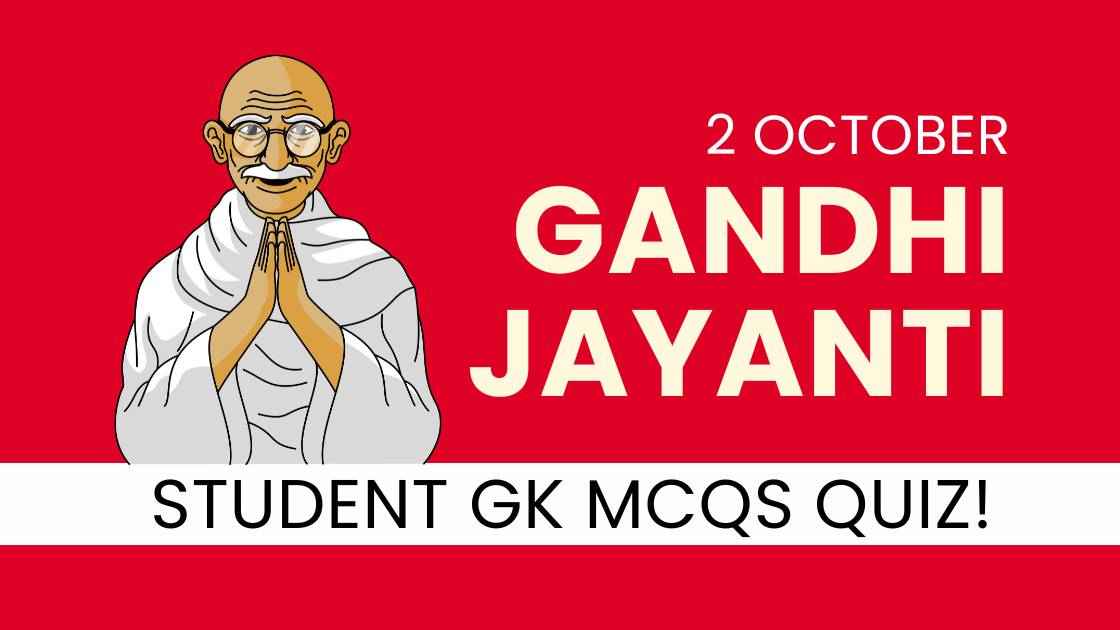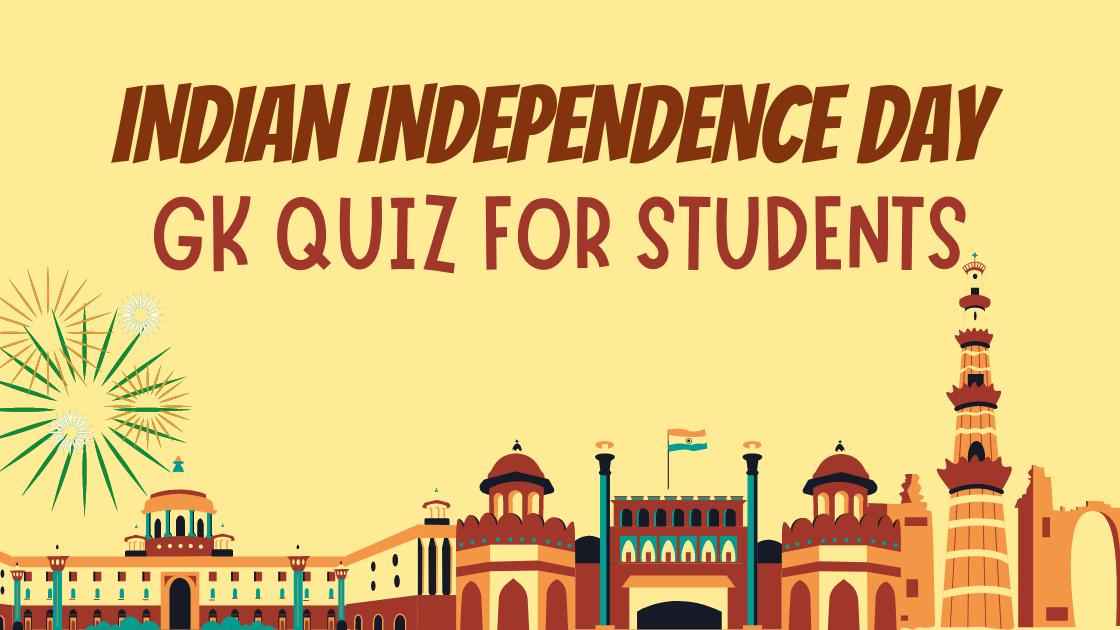Coffee General Knowledge Questions Quiz – Read Coffee Origin, History, Types and Facts
Hello Readers, welcome to a special General Knowledge post. After reading these general knowledge questions about coffee, you can test your coffee knowledge with the Coffee Quiz, complete with answers.
Table of Contents
ToggleCoffee is very famous around the world, and everyone needs coffee whenever they feel low. However, most people don’t know much about coffee. That’s why we have collected various fun trivia questions to test your knowledge of coffee.
GK Quiz Questions about Coffee | General Knowledge of Coffee
| Question | Information |
|---|---|
| Coffee Origin | African tropical evergreen coffee plants |
| Global Popularity | One of the three most popular beverages worldwide |
| Profitable Commodity | Among the most profitable international commodities |
| Main Source | Seeds of Coffea arabica and C. canephora |
| Arabica vs. Robusta | Arabica is milder and more aromatic; Robusta is hardier and cheaper |
| Caffeine Content | Caffeine, an alkaloid, produces the invigorating effect |
| Arabica Characteristics | Flatter, elongated bean; delicate; grown at higher elevations |
| Robusta Characteristics | Round, convex bean; hardier; grows at lower altitudes |
| Growing Regions for Arabica | Latin America, eastern Africa, Asia, and Arabia |
| Growing Regions for Robusta | Western and Central Africa, Southeast Asia, and Brazil |
Welcome to the world of coffee enthusiasts! Test your coffee knowledge with our engaging Coffee Quiz. Become a real coffee expert. Join us now in our Coffee Quiz (Coffee GK Quiz Question Answer) and show off your love for coffee!
Let’s start this aromatic journey together – your coffee adventure awaits!
General Knowledge Questions about Coffee
On which date International Coffee Day celebrated?
1 October – Every Year
What is coffee primarily brewed from?
Coffee is brewed from roasted coffee beans.
Why is coffee considered stimulating for humans?
Coffee has a stimulating effect primarily due to its caffeine content.
Where do coffee beans come from?
Coffee beans are the seeds of the Coffea plant’s fruits.
How are coffee beans prepared for brewing?
They are roasted, ground into fine particles, and then typically steeped in hot water.
What are the common ways to serve coffee?
Coffee is usually served hot but can also be chilled or iced.
What are some popular coffee preparations?
Espresso, French press, caffè latte, and canned coffee are popular preparations.
Where did coffee drinking as a modern beverage first appear?
Modern coffee drinking first appeared in Yemen in the middle of the 15th century.
Which two types of coffee beans are most commonly grown?
C. arabica and C. robusta are the two most commonly grown types.
In which regions are coffee plants primarily cultivated?
Coffee plants are primarily cultivated in the equatorial regions of the Americas, Southeast Asia, the Indian subcontinent, and Africa.
Which country was the leading grower of coffee beans as of 2023?
Brazil was the leading grower of coffee beans.
How is unroasted coffee traded?
Green, unroasted coffee is traded as an agricultural commodity.
What is a major criticism of the coffee industry?
A major criticism is that farmers producing coffee beans disproportionately live in poverty.
What environmental impacts is the coffee industry criticized for?
The coffee industry is criticized for its negative impact on the environment, including land clearing and water use.
How much was the global coffee industry worth as of 2023?
The global coffee industry was worth $495.50 billion.
Which countries are the top exporters of coffee beans as of 2023?
Brazil, Vietnam, and Colombia are the top exporters of coffee beans.
Simple and Engaging Coffee General Knowledge Questions
When did the word “coffee” first enter the English language?
The word “coffee” entered the English language in 1582.
What is the origin of the English word “coffee”?
The English word “coffee” comes from the Dutch ‘koffie,’ which was borrowed from the Ottoman Turkish ‘kahve.’
What does the Arabic word ‘qahwah’ traditionally mean?
Traditionally, ‘qahwah’ means ‘wine’ due to its dark color and was derived from ‘qahiya,’ meaning ‘to have no appetite.’
What might ‘qahwah’ have originally referred to?
‘Qahwah’ likely referred to the brew or the bean, known for its dark color.
What is the coffee bean called in Arabic and Cushitic languages?
In Arabic, coffee beans are called ‘bunn’ and in Cushitic languages as ‘būn.’
How are the words ‘coffee’ and ‘dark color’ connected in Semitic languages?
In Semitic languages, the root ‘qhh’ means ‘dark color,’ which became associated with coffee.
What year did the term “coffee pot” originate?
The term “coffee pot” originated in 1705.
When was the term “coffee break” first used?
The term “coffee break” was first used in 1952.
Is there a connection between the word ‘coffee’ and a specific region in Ethiopia?
Yes, the word ‘coffee’ is also thought to be connected to the Kaffa region of Ethiopia.
International Coffee Day Quiz General Knowledge Question and Answers
What is International Coffee Day?
It is a day to promote and celebrate coffee as a beverage.
When was the first official International Coffee Day?
The first official date was 3 October 2015.
Where was the first International Coffee Day launched?
It was launched in Milan.
What are the goals of International Coffee Day?
To promote fair trade coffee and raise awareness for the plight of coffee growers.
What do businesses typically do on International Coffee Day?
They offer free or discounted cups of coffee and share special deals.
When was the decision to launch the first official International Coffee Day made?
The decision was made on 3–7 March 2014.
Where was the first official International Coffee Day launched?
It was launched in Milan as part of Expo 2015.
When is National Coffee Day commonly celebrated?
It is commonly celebrated on or around September 29.
Which country first promoted an event similar to International Coffee Day?
Japan first promoted an event in 1983.
When was “National Coffee Day” first mentioned publicly in the United States?
It was mentioned as early as 2005.
Who first used the name “International Coffee Day”?
The Southern Food and Beverage Museum first used it in 2009.
When was International Coffee Day first celebrated in China?
It was first celebrated in 1997.
When did Taiwan first celebrate International Coffee Day?
Taiwan first celebrated it in 2009.
When did Nepal first celebrate National Coffee Day?
Nepal first celebrated it on 17 November 2005.
Engaging Coffee General Knowledge Questions
Get ready to explore the amazing world of coffee. From its rich history to how it’s made, We covered fun facts and important details below.
What alternative legend explains the discovery of coffee?
Another legend says Sheikh Omar discovered coffee by boiling berries to make a revitalizing liquid after being exiled from Mokha.
Where does the earliest credible evidence of coffee drinking trace back to?
The earliest credible evidence traces back to 15th-century Yemen, where Sufis drank coffee to stay awake during rituals.
How did coffee supposedly reach Yemen from Ethiopia?
Coffee may have reached Yemen from Ethiopia via trade across the Red Sea or introduced by individuals like Muhammad Ibn Sa’d or Ali ben Omar.
Who is credited with smuggling the first coffee seeds out of the Middle East?
Sufi Baba Budan is credited with smuggling the first coffee seeds from Yemen to India.
When did coffee first reach Europe, and through which city?
Coffee reached Europe around 1600, first arriving in Italy and then spreading from Venice to the rest of Europe.
What did Leonhard Rauwolf say about coffee in 1583?
He described coffee as a beverage “as black as ink,” beneficial for stomach ailments and consumed in the morning from a shared cup.
When did the first European coffee house open and where?
The first European coffee house opened in Venice in 1647.
Engaging General Knowledge Questions about Coffee Biology
Let’s explore the beans, plants, and processes that make coffee the beloved beverage it is around the globe. Get ready to unlock the mysteries of coffee with our engaging questions!
What are the two main species of coffee commercially cultivated?
The two main species are Coffea canephora (commonly known as ‘robusta’) and Coffea arabica.
Where is Coffea arabica originally from?
Coffea arabica is native to the southwestern highlands of Ethiopia and regions in Sudan and Kenya.
What African regions is Coffea canephora native to?
Coffea canephora is native to western and central Sub-Saharan Africa, from Guinea to Uganda and southern Sudan.
What family do coffee plants belong to?
All coffee plants are part of the large Rubiaceae family.
Describe the physical characteristics of coffee plants.
Coffee plants are evergreen shrubs or trees with dark green, glossy leaves, usually growing up to 5 meters tall when unpruned.
What are the characteristics of coffee flowers?
Coffee flowers are white, fragrant, bloom simultaneously in clusters, and are axillary.
How do coffee berries change color as they mature?
Coffee berries turn from green to yellow, then crimson, and finally black upon drying.
What is unique about the seeds inside a coffee berry?
Each berry usually contains two seeds, but 5-10% have only one, known as peaberries.
How long does it take for Arabica and Robusta berries to ripen?
Arabica berries ripen in six to eight months, while Robusta berries take nine to eleven months.
Is Coffea arabica self-pollinating or self-incompatible?
Coffea arabica is predominantly self-pollinating, leading to uniform seedlings.
How are Coffea canephora and C. liberica different in terms of pollination?
Both Coffea canephora and C. liberica are self-incompatible and require outcrossing.
What methods are typically used for the vegetative propagation of coffee plants?
Cuttings, grafting, and budding are common methods for vegetative propagation of coffee plants.
Simple and Engaging Coffee Roasting Knowledge Questions
Ready to heat things up? Let’s explore the fascinating process of coffee roasting! Discover how beans transform into the brew we love in our simple and engaging quiz on coffee roasting.
What happens to coffee beans during the roasting process?
Coffee beans lose moisture, increase in volume, and change both physically and chemically.
At what temperature does coffee bean roasting typically begin?
Roasting starts when the temperature inside the bean reaches approximately 200 °C.
What significant chemical change occurs in coffee beans during roasting?
Caramelization occurs, breaking down starches into simple sugars that start to brown.
What happens to sucrose during the roasting process?
Sucrose is rapidly lost and may disappear entirely in darker roasts.
How does roasting affect the flavor and aroma of coffee?
Roasting weakens aromatic oils and acids, changing the coffee’s flavor, while oils like caffeol, responsible for coffee’s aroma and flavor, start to develop.
50 Engaging General Knowledge Questions about Coffee
Ready for a coffee adventure? Dive into our quick and fun quiz on all things coffee! From its origins to how we enjoy it today, test your knowledge and learn something new about your favorite brew. Let’s get started!
What form does instant coffee come in?
Instant coffee comes in soluble powder or freeze-dried granules.
Who invented instant coffee, and where?
David Strang from Invercargill, New Zealand, invented instant coffee in 1890.
Which company’s product became synonymous with instant coffee post-war?
Nescafé became the most popular instant coffee product post-war.
What was a significant factor in the rise of instant coffee?
The convenience of preparing instant coffee made it popular despite a perceived inferior taste.
When were coffee vending machines invented?
Coffee vending machines were invented in 1947.
Which Asian countries have a long-standing popularity for canned coffee?
China, Japan, South Korea, and Taiwan are known for their popularity of canned coffee.
What is the purpose of liquid coffee concentrates?
They are used in large institutional situations to produce coffee quickly for many people.
Where does the majority of coffee production take place?
Over 90 percent of coffee production occurs in developing countries, mainly in South America.
What is the main export revenue source for countries like Burundi and Ethiopia?
Coffee constitutes the main export revenue.
How is coffee traded in markets?
Coffee is traded as green coffee beans in commodity markets and exchange-traded funds.
What does the ticker symbol ‘KC’ represent in coffee trading?
‘KC’ represents Grade 3 washed arabicas in coffee futures contracts on the New York Mercantile Exchange.
What has coffee been incorrectly described as in the world market?
Coffee has been incorrectly described as the world’s “second most legally traded commodity.”
When is International Coffee Day celebrated?
International Coffee Day is celebrated on 29 September.
Which country consumes the most coffee per capita?
Finland consumes the most coffee per capita.
What led to the shift of Brazilian entrepreneurs’ attention from gold to coffee?
Market volatility in 1830 encouraged the shift towards coffee production.
What significant change occurred in coffee production in the early 1900s in Brazil?
Coffee production attracted immigrants, leading to a surge in coffee output.
What is the concept behind fair trade coffee?
Fair trade coffee ensures coffee growers a negotiated preharvest price.
What led Starbucks to carry fair-trade coffee?
A campaign by the human rights organization Global Exchange.
What drives the demand for specialty coffee?
A desire for more traceable coffee and direct trading relationships.
What is a unique feature of specialty coffee trading?
Some coffee is sold through internet auctions or competitions.
What are the main nutrients found in espresso?
Espresso contains magnesium, B vitamins, niacin, riboflavin, and caffeine.
What is the main psychoactive chemical in coffee?
Caffeine is the main psychoactive chemical in coffee.
How does coffee consumption affect defecation?
Coffee has laxative effects, inducing defecation in some individuals.
What impact do polyphenols in coffee have?
Polyphenols in coffee affect free radicals in vitro but have little direct antioxidant value in humans.
What is the general consensus on coffee consumption and health ?
Drinking coffee is generally safe and more likely to improve health outcomes than cause harm.
How does the caffeine content vary in different coffee preparations?
The caffeine content varies depending on the brewing method and coffee variety.
What year was the coffeehouse concept introduced in Constantinople?
The first coffeehouse in Constantinople opened in 1475.
What is a barista?
A barista is a person who makes coffee beverages, often an employee at a coffeehouse.
What is a coffee break, and where did it originate?
A coffee break is a short rest period for coffee, originating in the late 19th century in Stoughton, Wisconsin.
Why was coffee consumption historically prohibited or condemned by some religious groups?
Coffee was debated for its permissibility and impact on society by various religious groups.
What folklore is associated with coffee in the United States?
Coffee is sometimes called a “cup of Joe,” with various origin stories linked to the phrase.
What marked the beginning of the coffee culture in Europe?
Coffee culture in Europe began with the opening of the first coffee house in Venice in 1647.
Why did King Charles II of England briefly outlaw coffeehouses?
He outlawed coffeehouses to quell perceived rebellion.
What role did coffee play in early morning routines and formal meals?
Coffee is often consumed alongside breakfast or at the end of a formal meal.
What did King Frederick the Great of Prussia do regarding coffee?
He banned coffee in Prussia, concerned about the economic implications of importing coffee.
Describe the economic impact of coffee in Brazil in the early 1900s.
Coffee production led to significant economic growth and attracted a large number of immigrants.
What are the main challenges in the fair trade coffee market?
The fair trade coffee market faces challenges such as inconsistent consumer buying behavior and skepticism about its impact.
How has the specialty coffee movement changed coffee trading?
The specialty coffee movement has increased the demand for traceable and directly traded coffee.
What are some reasons for the popularity of instant coffee?
Instant coffee gained popularity due to its convenience and improvements in taste since the late 1970s.
What innovations complemented the rise of instant coffee?
Coffee vending machines and the development of coffee concentrates complemented the rise of instant coffee.
How has canned coffee been received in Asian countries?
Canned coffee is popular in Asian countries, sold in vending machines and available both hot and cold.
What historical figure is associated with the smuggling of coffee seeds?
Sufi Baba Budan is associated with smuggling the first coffee seeds from Yemen to India.
How did the price of coffee contribute to Brazil’s shift from gold to coffee production?
Market volatility and increased returns from coffee encouraged the shift towards coffee production.
What social functions do coffeehouses serve?
Coffeehouses serve as social hubs where prepared coffee and other hot beverages are consumed.
How does coffee consumption per capita vary globally?
Coffee consumption per capita is highest in Nordic countries, with Finland leading.
What historical impact did coffee have on political and economic reasons?
Coffee has been prohibited for political and economic reasons in various historical periods.
What is the significance of International Coffee Day?
International Coffee Day celebrates coffee and raises awareness of coffee growers’ challenges.
Information gathered from Various sources.
We hope you would like these GK questions about COFFEE. The above coffee-related Q&A were collected and created from many different sources. If you find any non-relevant or wrong answers, please comment in the comment box. After checking, we will update it.
This GK Quiz on coffee is made to tell students and adults more about coffee. This Exciting General knowledge Quiz can also be used for fun Games for school.
It is and exciting GK Quiz made for students and adults for fun and for awareness of their surroundings. We hope you would like this Unique and interesting questions about coffee.
We hope asking these coffee questions would provide you fun. These GK Quiz Questions on COFFEE could also help you learn more about the world around us.
For the Latest Educational News (CBSE, ICSE, and State Board News) and live news updates, like us on Facebook or follow us on Twitter and Join our Premium Telegram Channel. Read more on Latest Exams & Results News on Shikshapress.com.







